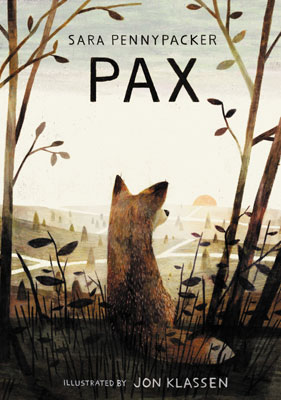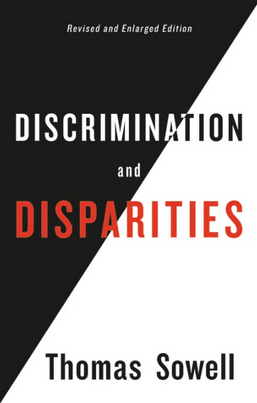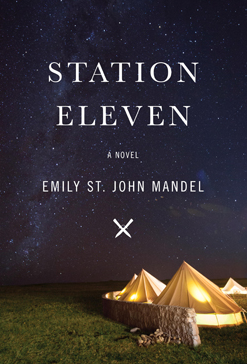compiled by Chris Ervin
In this Staff Picks, we share what we’ve been reading lately. Our selections cover a range of topics and genres, each showing how we were compelled and engaged by the authors’ treatment of the desire to belong, to feel part of a communal experience, and to be valued for our unique contributions. We’re reading scholarly books, research reports, blogs, and novels—all of which are informing our work during this very difficult time.
We invite you, our readers of The Success Kitchen, to share what you’re reading with us. Fill out this survey with your own reading selection and your submission might be featured in the next issue of The Success Kitchen!
Sarah Norek
These days I’ m reading Sara Pennypacker’s Pax with my kids. It’s about a boy, Peter, and his fox, Pax, and explores the themes of uncertainty, loss, trauma, connection, and what we hold inside ourselves. So many of our students (our colleagues, ourselves) are holding a lot inside. And we may know so little from the outside. “He could offer only withness, and nothing else.” This from a moment when Pax lies down with another fox to be with him through a life transition. While I’m not saying we can’t offer more than withness, this line struck me in its closeness to witness—in being with another individual in a moment, a series of moments, an experience. I keep thinking about how I can be with students this term, even as we’re apart.
m reading Sara Pennypacker’s Pax with my kids. It’s about a boy, Peter, and his fox, Pax, and explores the themes of uncertainty, loss, trauma, connection, and what we hold inside ourselves. So many of our students (our colleagues, ourselves) are holding a lot inside. And we may know so little from the outside. “He could offer only withness, and nothing else.” This from a moment when Pax lies down with another fox to be with him through a life transition. While I’m not saying we can’t offer more than withness, this line struck me in its closeness to witness—in being with another individual in a moment, a series of moments, an experience. I keep thinking about how I can be with students this term, even as we’re apart.
Clare Creighton
 In the last month, Sarah Norek and I partnered with CAPS colleagues to create a webinar and a self-guided Canvas module on “Learning During Times of Stress,” (shameless plug: you can find it here). In the process of that work, I read the Impact of COVID-19 on College Student Well-Being report. I appreciated the report highlighting how concerned students feel about mental health. These results will impact how I approach student communication and student staff training on empathy, support, and self-care as they deliver services. I’m also mindful of how student experiences are impacted by current national events and am looking forward to learning how OSU students are doing based on our September student survey.
In the last month, Sarah Norek and I partnered with CAPS colleagues to create a webinar and a self-guided Canvas module on “Learning During Times of Stress,” (shameless plug: you can find it here). In the process of that work, I read the Impact of COVID-19 on College Student Well-Being report. I appreciated the report highlighting how concerned students feel about mental health. These results will impact how I approach student communication and student staff training on empathy, support, and self-care as they deliver services. I’m also mindful of how student experiences are impacted by current national events and am looking forward to learning how OSU students are doing based on our September student survey.
Chris Gasser
 I’ve recently finished reading Discrimination and Disparities (2018) by Thomas Sowell. In his book, Sowell provides an economist’s interpretation of socioeconomic disparities and the relationship between discrimination and disparity by presenting research and questioning some of our most basic assumptions. In our work with students, we might find use of Sowell’s nuanced categorization of discrimination to understand disparities that exist within higher ed. As we seek to make the university a more equitable place, Sowell’s book challenges us to think about how our policies may or may not respond to different types of discrimination that exist within our current educational environment.
I’ve recently finished reading Discrimination and Disparities (2018) by Thomas Sowell. In his book, Sowell provides an economist’s interpretation of socioeconomic disparities and the relationship between discrimination and disparity by presenting research and questioning some of our most basic assumptions. In our work with students, we might find use of Sowell’s nuanced categorization of discrimination to understand disparities that exist within higher ed. As we seek to make the university a more equitable place, Sowell’s book challenges us to think about how our policies may or may not respond to different types of discrimination that exist within our current educational environment.
Marjorie Coffey
 Jesse Stommel’s website—which highlights his work on critical digital pedagogies and building inclusive online learning communities—has helped me think more intentionally about course design, community, student needs, and assessment as I plan for fall. As examples, recent posts “Becoming a Student Ready Teacher” by Eddy Conroy and Jesse Stommel and “Designing for Care: Inclusive Pedagogies for Online Learning” encourage us to learn about our students—their everyday experiences, needs, and challenges—and to ask ourselves tough questions that can lead to pedagogical and policy changes that demonstrate care and compassion in our work.
Jesse Stommel’s website—which highlights his work on critical digital pedagogies and building inclusive online learning communities—has helped me think more intentionally about course design, community, student needs, and assessment as I plan for fall. As examples, recent posts “Becoming a Student Ready Teacher” by Eddy Conroy and Jesse Stommel and “Designing for Care: Inclusive Pedagogies for Online Learning” encourage us to learn about our students—their everyday experiences, needs, and challenges—and to ask ourselves tough questions that can lead to pedagogical and policy changes that demonstrate care and compassion in our work.
Anika Lautenbach
 For years I have been reading The Sun, and this magazine continues to provide a bit of solace and much needed breaks from the screen. Sometimes I only have time for the Readers Write section, which includes personal stories that give me greater perspective on the unique experience of each person. When supporting students, I find that empathy needs to be part of every conversation. It starts with listening, and I found The Power of Story to be especially compelling right now. It helps me remember that we must approach each other with compassion and find a way to connect.
For years I have been reading The Sun, and this magazine continues to provide a bit of solace and much needed breaks from the screen. Sometimes I only have time for the Readers Write section, which includes personal stories that give me greater perspective on the unique experience of each person. When supporting students, I find that empathy needs to be part of every conversation. It starts with listening, and I found The Power of Story to be especially compelling right now. It helps me remember that we must approach each other with compassion and find a way to connect.
Chris Ervin
 I recently re-read Station Eleven by Emily St. John Mandel—a novel following a troupe of actors and their orchestra through hardships before and after an apocalypse that erases most trappings of society that define modern life. Unlike other post-apocalyptic novels which often emphasize our ability to find common ground in the face of hardship, Station Eleven explores the relationship between humans and art, embracing the idea that creating, appreciating, and celebrating art is an integral part of the human experience, even in desperate times. Throughout 2020, we’ve faced a pandemic, advanced resistance movements to end systemic racism, and suffered egregious loss of life and of social connectedness, but we continue to celebrate the beauty and complexity of the human condition. Station Eleven tells us that’s okay, even when facing life-and-death decisions on a daily basis.
I recently re-read Station Eleven by Emily St. John Mandel—a novel following a troupe of actors and their orchestra through hardships before and after an apocalypse that erases most trappings of society that define modern life. Unlike other post-apocalyptic novels which often emphasize our ability to find common ground in the face of hardship, Station Eleven explores the relationship between humans and art, embracing the idea that creating, appreciating, and celebrating art is an integral part of the human experience, even in desperate times. Throughout 2020, we’ve faced a pandemic, advanced resistance movements to end systemic racism, and suffered egregious loss of life and of social connectedness, but we continue to celebrate the beauty and complexity of the human condition. Station Eleven tells us that’s okay, even when facing life-and-death decisions on a daily basis.


This is so great — thanks for sharing these readings and your connections to them. Makes me want to sit down and read.
Janet
Thanks, Janet! We’d love to hear about what you’re reading too.